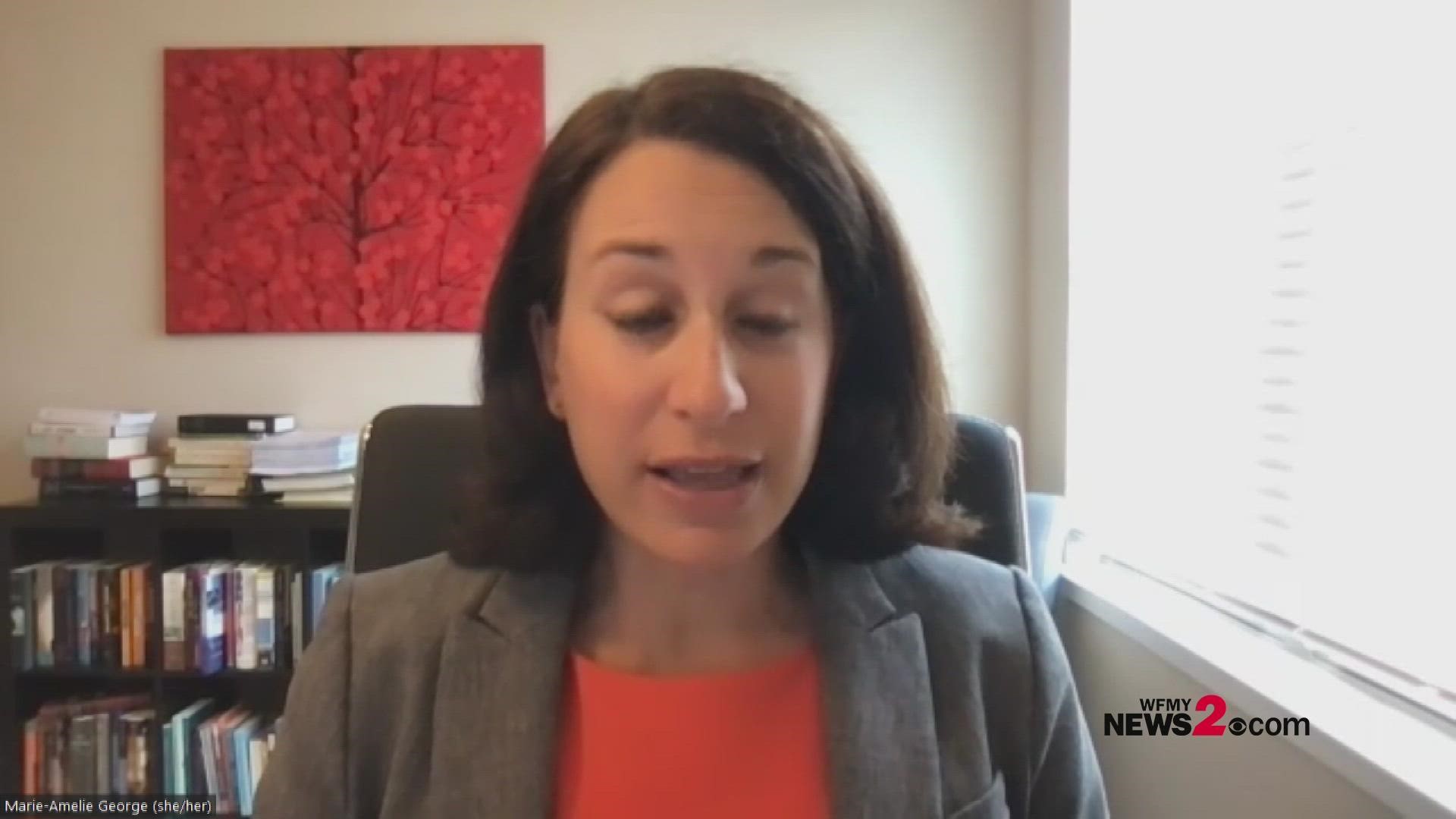GREENSBORO, N.C. — After a leaked draft opinion surfaced from the Supreme Court about Roe v. Wade, a Triad law professor says other court decisions and rights could be challenged depending on what comes next.
Associate Professor at Wake Forest University School of Law Marie-Amelie George said the Roe v. Wade opinion was based on the idea that people are allowed to make decisions essential to the way they structure their private lives.
"The court in this draft opinion is saying that they’ve taken this right to privacy too far, that it exists but they’ve extended it beyond the constitutional bounds, and that it should only be recognizing the right to privacy where it is essential to our nation's scheme of ordered liberty as well as rights rooted in our nation's history and traditions," George said.
However, George said the court has recognized other rights based on the right to privacy that appear less rooted in U.S. history than abortion.
"One of those is interracial marriage. It's based on the idea of treating people equally based on race but it was also a decision based on the right to privacy, the right to intimate association and if that is not true for abortion rights because they don’t go back to the nation's founding, that certainly is not true for interracial marriage," George said. "In fact, there’s a much stronger historical argument for abortion than for interracial marriage because abortion was legal at the time of the nation's founding."
George said other rights to privacy, like the right to contraception, non-procreative sex, and other intimate decisions are now in question because of the way the draft is written.
Court decisions that ultimately led to other freedoms, like same-sex marriage, mention Roe v. Wade.
"There are all sorts of decisions based on Roe and its interpretation of its right to privacy. The Lawrence v. Texas opinion in 2003 that struck down laws criminalizing same-sex consensual sodomy," George said. "That relied on Roe and its interpretation of its right to privacy. The Obergefell v. Hodges decision in 2015 that recognized that same-sex couples had a fundamental right to marry, that is also rooted in Roe. It cites Roe and it is very much founded in its interpretation of the right to privacy."
Challenges coming to these other court decisions aren't out of the question, according to George.
"It's true that the people who have been supporting the lawsuits challenging Roe v. Wade often also want to see some of these other rights stripped away. I would imagine that the same impulse that gave rise to the Dobbs lawsuit and this draft opinion would also give rise to challenges, especially to Obergefell v. Hodges. But these other rights may come under attack," George said.
While there's no guarantee what the Supreme Court will do, George said there are steps the justices can take to separate abortion from other rights.
"They can cabin abortion and say it's about fetal personhood and the rights of unborn children and distinguish it from same-sex marriage, procreation, interracial marriage. But, they are opening the door to efforts to undermine all of these other rights," said George.
What comes next is in the Supreme Court's hands, according to George.
"Although the court has said this is a draft opinion, that it is legitimate and an authentic document, it's not an opinion that they’ve issued and the reason that they draft opinions and circulate them amongst themselves is to get feedback from each other, change the language, perhaps change the reasoning entirely. So, the opinion that the court issues may not be what the draft opinion is. It may look very different, it may look exactly the same," she said.
George said Congress and state legislatures can take action to prepare for whatever decision the Supreme Court comes to.
Typically, the court issues opinions in June, Geroge said, but because of the interest of the public, it's possible an opinion could be issued sooner.
"It certainly has the choice as to when it does that," she said.

